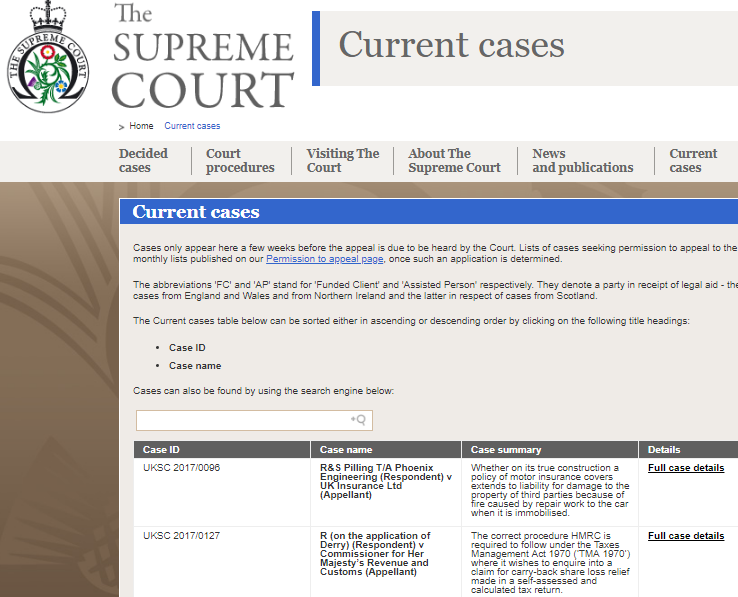5 Resources to Use to Find a Killer Law Dissertation Topic
By Christopher Mallon LLB, LLM, PhD Candidate and Private Tutor and Award Winning Dissertation Tutor.
As a law dissertation tutor, I work with many law students who struggle to
find a good law dissertation topic. It is certainly in top 10 requests
I receive on a weekly basis.
Well never fear – help is here.
The key is to find a topic that is interesting and allows for critical debate.
The good news is that law students already have access to resources
that can help. In this post, I will show you 5 resources to use to find
a law dissertation topic.
- The Law Commission website
The business of the Law Commission is law reform. The Commission is
tasked with ensuring the law is fair, simple and modern.
You can bet their website is a pretty good resource for sparking a
great law dissertation topic idea.
a. The news section
The site’s news section gives regular updates on law reform.
The headlines can provide some current insight into law reform and can ignite ideas for you:

You can see a couple of headlines here.
Using these as inspiration you might consider whether the current law is
capable of providing a definite answer as to whether electronic signatures can
be used to contract or whether legislation should be used.
Or you might investigate financial order reform if you prefer a family law or land law theme.
You can see from the diagram above that there is a search facility on the Law
Commission website.
Just type in a keyword or phrase of a topic that interests you.
Then check out what comes up in the search results. You should come across
some inspiration for a fantastic idea for your law dissertation.
b. The 13th Programme for Law Reform
The Law Commission has recently published its 13th Programme for Law Reform.
What is it?
It is essentially a document indicating what legal reforms the Commission will
consider over the next 2-3 years.
The Commission has ‘focused on reforms which will reduce unfairness for the citizen
and those which will help to enhance the UK’s competitiveness internationally following
our exit from the European Union.’
Some of these topics that the Law Commission will concentrate on include:
- A Modern Framework for Disposing of the Dead
- Administrative Review
- Automated Vehicles
- Electronic Signatures
- Employment Law Hearing Structures
- Intermediated Securities
- Modernising Trust Law for a Global Britain
- Museum Collections
- Registered Land and Chancel Repair Liability
- Residential Leasehold
- Simplifying the Immigration Rules
- Smart Contracts
- Surrogacy
- Unfair Terms in Residential Leasehold
You can download the full 49-page report here.
The report gives a small synopsis of each reform project. These can spark a really good
idea in your mind and provide the first shoots of your dissertation project.
In addition, the report also outlines the ‘maybe’ projects. Projects that at present
are not considered a primary focus for the Commission. The Commission’s loss
could be your gain.
Check out those projects and see if any interest you for your law dissertation.
2. Lexis PSL
I admit it.
I love Lexis PSL.
There. I said it.
I know I sometimes sound like I am a shareholder in the company but I am not.
I just think it is a fantastic resource for law students generally and for a law
dissertation project.
But how can it help you come up with a law dissertation topic?
Lexis PSL is designed for practitioners like solicitors and barristers. However, many law students
have access to these resources.
They are split into sections like family law, employment law, company law and so on.
From the main menu, hover over each subject and you will see many topics that are
related to your law degree and very practical topics also. Finding a good dissertation topic
is also about finding an original dissertation idea. Lexis PSL lets you do that.
LexisPSL is accessible through the homepage of your Lexis subscription. Most if not all
Law Schools have these. Seek help from your law librarian if you need help to
access this resource.
3. The Supreme Court website
The website for the highest court in the land is our next stop.
One part of the Supreme Court website outlines appeals that will be heard
by the Justices over the next few months. You can access a list of upcoming
hearings here.
You should see a list similar to this:

How can this help with my dissertation?
Scroll down the list and spot a case that interests you. You can see a brief synopsis
of the main legal issue in the case under the ‘case summary’ column. The main
legal issue in the case is usually framed as a question. With some editing this could
become the research question for your dissertation.
Let’s take an example of an upcoming case summary from the site:
Whether non-clinically trained reception staff at an A&E department owed a tortious duty of care
to the appellant to provide him with accurate information regarding waiting times.
With a small adjustment this can become a dissertation topic to do with duty of care
in tort and in the context of medical staff.
Top Tip: start your research question with ‘Ought’ or ‘Should’ and make sure it
can be stated in one sentence to ensure that your research topic is critical and precise.
The great thing about the Supreme Court site is that the legal issue before the court
will be phrased as a question. This can form your research question for your dissertation.
Your research question could become:
Ought non-clinically trained reception staff at an A&E department owed a tortious duty of care when
providing waiting time information to patients?
4. The “Thesis” PDF trick
This little trick is great.
You are not the first law student to write a law dissertation.
Thousands have come before you.
And the majority of law dissertations tend to find themselves made public at some stage.
This is usually through a University library website.
Warning!
This method is not a license for you to copy a student’s dissertation.
I repeat. This is not an excuse for plagiarism.
You are merely trying to see what ideas other students have come up with to
help inspire your own idea. This could be extending, challenging, refining
or updating something that you see in a published dissertation.
Let’s say you are interested in a law dissertation about floating and fixed
charges and how they can be reformed.
On the Google Homepage search for:
“floating charge” AND “fixed charge” AND “reform” AND “thesis” pdf
This will return all publicly available dissertations in this area.
Top Tip:
If you want to see high-level work at Ph.D. level on your topic area add the
words ‘partial fulfilment’ to your search terms.
All Ph.D. thesis have a title page which states that a thesis is being submitted
as ‘partial fulfilment of the requirements of a Ph.D.’
Including ‘partial fulfilment’ in your Google search means you will pick
these up in your search.
The literature reviews in these pieces can be a really good first step for you
in finding out what the current law/debate/theory is in this area.
5. Guardian Law
Before we begin.
Other UK newspapers do exist.
However, I prefer the Guardian.
First, unlike the Times you do not need to pay for access.
Second, the depth of detail is just about right.
How can the Guardian help you come up with a dissertation topic?
Well – this one is an easy one.
Read the articles and see what interests you.
Then make sure the story reveals a legal element. Good law dissertations will be rooted in law.
Try and find an article that engages an area from your core or optional modules.
I hope this helps. If you have any queries about the dissertation process,
law dissertation ideas and how to score well, get in touch.